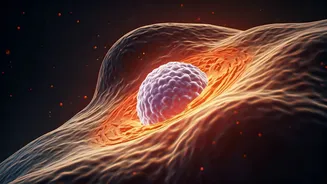Branches of Science
Science, at its core, is the systematic pursuit and application of knowledge and understanding of the natural and social world. It can be broadly categorized
into many interconnected disciplines, each with its own focus and methodologies. Broadly, Science can be divided into three main branches: natural sciences, social sciences, and formal sciences. Natural sciences, such as biology, chemistry, and physics, are focused on the natural world, aiming to understand how the universe and everything within it works. Social sciences, including economics, sociology, and political science, delve into the study of human behavior and societies. Formal sciences, encompassing mathematics and logic, utilize formal systems to generate new knowledge. These divisions, however, are not entirely isolated; they frequently intersect and inform each other, fostering interdisciplinary collaborations and breakthroughs.
The Scientific Method
At the heart of all scientific endeavors lies the scientific method, a systematic approach to inquiry that guides the investigation and understanding of phenomena. The scientific method generally begins with observation and forming a question. This is followed by the formulation of a hypothesis, a testable explanation for the observed phenomenon. After that, scientists design and conduct experiments or collect data to test their hypothesis. The data are then analyzed, and conclusions are drawn. These conclusions either support or refute the original hypothesis. If the hypothesis is supported, it may lead to the development of a scientific theory, a well-substantiated explanation of some aspect of the natural world. This method relies on objectivity, and the processes must be repeatable and verifiable by others. It’s a cyclical process that continually refines our understanding of the world, driving new questions and investigations.
Key Scientific Discoveries
Throughout history, science has revolutionized our understanding of the world and how we live in it. There are many pivotal breakthroughs that have shaped modern life. One notable example is the discovery of penicillin by Alexander Fleming in 1928, which transformed medicine by providing an effective treatment for bacterial infections, saving millions of lives. The theory of relativity, developed by Albert Einstein, redefined our understanding of space, time, and gravity, and laid the foundation for modern cosmology. The unraveling of the structure of DNA by James Watson and Francis Crick in 1953 unlocked the secrets of heredity and paved the way for advances in genetics and biotechnology. These groundbreaking achievements showcase the immense power of scientific inquiry and its profound impact on society.
Science in Everyday Life
Science is far more than just laboratory experiments and complex theories. It is woven into the fabric of our daily lives, often in ways that we may not even realize. From the technology we use to the food we eat and the medicine we take, science has a role. Consider your morning routine: from the coffee brewing (chemistry) to the weather forecast (meteorology) to the smartphone (physics and computer science), science is present. In agriculture, scientific advancements in crop science and genetics have led to increased food production. Medical breakthroughs, driven by scientific research, have increased life expectancy and improved our health. Science offers us not only knowledge but also the power to improve our lives and shape our future.
The Future of Science
Looking ahead, the future of science is filled with exciting possibilities and profound challenges. Several areas of research are poised to make significant breakthroughs. Artificial intelligence and machine learning are rapidly evolving, with the potential to transform industries, healthcare, and our daily lives. In the field of medicine, advancements in gene editing and personalized medicine promise to revolutionize disease treatment and prevention. Space exploration and climate science are critical areas, with scientists searching for solutions to climate change and the expansion of human presence in the cosmos. As technology continues to advance and collaboration across scientific disciplines increases, we can expect more amazing discoveries to make a positive impact on the world.













